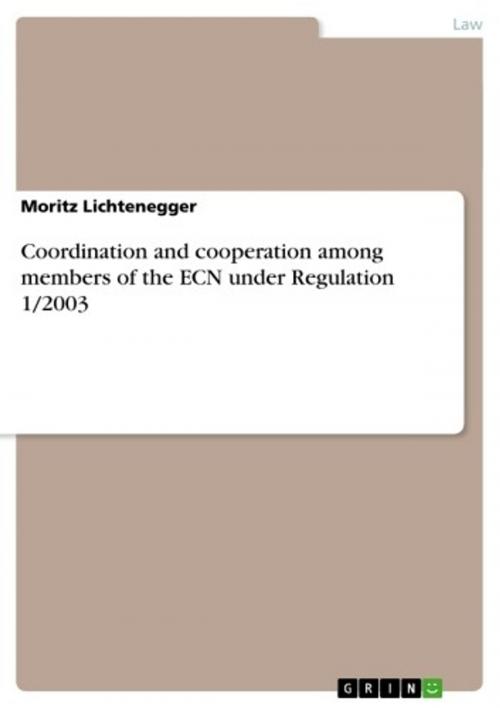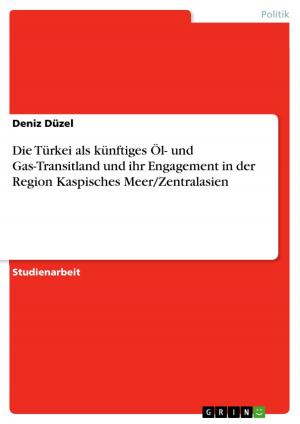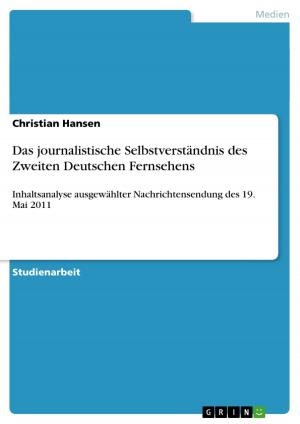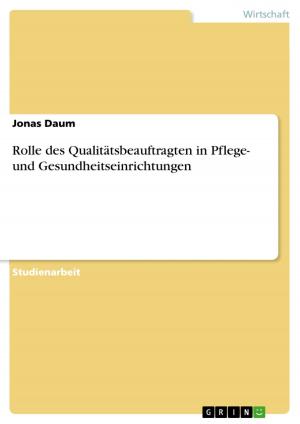Coordination and cooperation among members of the ECN under Regulation 1/2003
Nonfiction, Reference & Language, Law, International| Author: | Moritz Lichtenegger | ISBN: | 9783638426220 |
| Publisher: | GRIN Verlag | Publication: | October 11, 2005 |
| Imprint: | GRIN Verlag | Language: | English |
| Author: | Moritz Lichtenegger |
| ISBN: | 9783638426220 |
| Publisher: | GRIN Verlag |
| Publication: | October 11, 2005 |
| Imprint: | GRIN Verlag |
| Language: | English |
Document from the year 2004 in the subject Law - European and International Law, Intellectual Properties, grade: First Class Honours: A-, London School of Economics (Law Department), course: EU competition law, 47 entries in the bibliography, language: English, abstract: It is now more than a year ago since Regulation 1/2003 was finally adopted1and some five years after the first discussions about a comprehensive reform of the EC competition law had been launched in the context of the Commission's White Paper on Modernisation2. And only now the dust surrounding this highly contentious 'political masterstroke'3seems to be settling4. This, however, should not come as a surprise as Art. 35(1)5sets the Member States the ultimate deadline of 1 May 2004also the date of entry into force of Regulation 1/2003 - to comply with their respective infrastructural and technical duties. But still there are some practical uncertainties inherent in the application of Regulation 1/2003 which need to be addressed be-fore the European Competition Network (ECN) will start to take up its work. As far as I can see, these uncertainties mainly concern the coordination and cooperation among its members and especially among national competition authorities (NCAs). This paper, therefore, seeks to address the main difficulties which remain even after the Commission has published six notices to accompany Regulation 1/2003, namely the problem of case allocation within the ECN and the problems arising from the system of exchange of information.
Document from the year 2004 in the subject Law - European and International Law, Intellectual Properties, grade: First Class Honours: A-, London School of Economics (Law Department), course: EU competition law, 47 entries in the bibliography, language: English, abstract: It is now more than a year ago since Regulation 1/2003 was finally adopted1and some five years after the first discussions about a comprehensive reform of the EC competition law had been launched in the context of the Commission's White Paper on Modernisation2. And only now the dust surrounding this highly contentious 'political masterstroke'3seems to be settling4. This, however, should not come as a surprise as Art. 35(1)5sets the Member States the ultimate deadline of 1 May 2004also the date of entry into force of Regulation 1/2003 - to comply with their respective infrastructural and technical duties. But still there are some practical uncertainties inherent in the application of Regulation 1/2003 which need to be addressed be-fore the European Competition Network (ECN) will start to take up its work. As far as I can see, these uncertainties mainly concern the coordination and cooperation among its members and especially among national competition authorities (NCAs). This paper, therefore, seeks to address the main difficulties which remain even after the Commission has published six notices to accompany Regulation 1/2003, namely the problem of case allocation within the ECN and the problems arising from the system of exchange of information.















